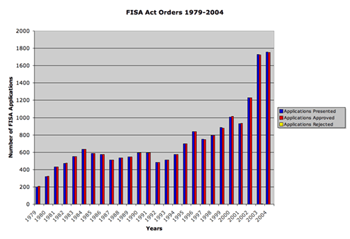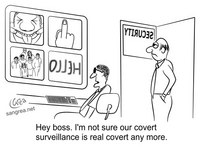British Crown dragnets of information against smuggling led to the U.S. Fourth Amendment, and U.S. defense against those dragnets was the origin of the Gadsden rattlesnake flag. Those colonial Writs of Assistance were much like that FISA court order for Verizon call logs and the NSA PRISM wide-range domestic communications dragnet, while Senators Feinstein and Chambliss act like the colonial royal governors who issued those Writs.
The Fourth Amendment to the U.S. Constitution:
The right of the people to be secure in their persons, houses, papers, and effects, against unreasonable searches and seizures, shall not be violated, and no Warrants shall issue, but upon probable cause, supported by Oath or affirmation, and particularly describing the place to be searched, and the persons or things to be seized.
Senators Feinstein and Chambliss admit there is no probable cause, and no particular description of the place to be searched or the persons or things to be seized.
 The Fourth Amendment was proposed because of things very like that
FISA court order to Verizon back in colonial times, namely
writs of assistance to stop smuggling:
The Fourth Amendment was proposed because of things very like that
FISA court order to Verizon back in colonial times, namely
writs of assistance to stop smuggling:
In 1760, governor [Francis] Bernard of Massachusetts authorized the use by revenue officers of writs of assistance. Writs of assistance were Continue reading




